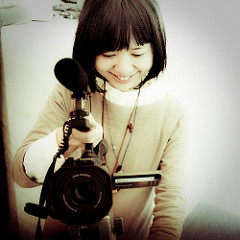
More photos of this internship may be found here.
Shure University provides free education within a non-traditional model for adults in Japan. The curriculum is student-driven and project-based in the spirit of democratic education. The non-profit school offers projects in a wide variety of disciplines based on student interests and interns are able to support current projects or propose and lead their own. Past project areas include art and film (including art exhibits and film festivals), solar cars, alternative energy, music programs, and support of international exchange programs and the development of English language materials.
Interns will work closely with Japanese students and staff. This is a great opportunity for students interested in developing their teaching methods and communication skills, particularly with diverse populations. Interns will have the opportunity to support an array of projects and activities and should be self-motivated and passionate about helping others.
Internship Start Dates:
Duration of Internship:
Shure University is a non-profit organization founded by students in April 1999 and is at the heart of student-directed education in Japan and role model for non-traditional education across the globe. It is a “free school”, providing an alternative education option for adult students in Japan who wish to continue learning. The school currently serves approximately 50 students through classes taught in-person and remotely via email, telephone, and teleconferencing. Any person 18 or older who wants to pursue their interests can join, and many students who have faced difficulties within a traditional classroom (such as bullying, truancy, or seclusion from society) are able to continue their education at Shure.
Students at Shure pursue studies in their areas of interest within a project-based curriculum designed by the students, faculty, staff, and advisors. Students are able to participate in all phases of their education, from devising educational programs to running and evaluating them. An emphasis is placed on non-traditional ways of learning and expressing oneself. For example, students interested in engineering might participate in a project to build a solar car; students interested in media might write, produce, and distribute a short film. Shure provides an environment for students in which individuality is respected and supportive and collaborative relationships are fostered. More information about current events can be found on Shure’s Facebook and on their website.
Shure Tokyo, founded in 1985, is the parent organization of Shure University. Shure Tokyo was established to provide an alternate education model that would address perceived deficiencies in Japan’s public education system. The goal was to provide an alternative education space where any child could be herself/himself and have the support of parents and other citizens. Shure Tokyo was one of the first free schools (also known as alternative education centers) in Japan and continues to help guarantee a student’s right to education.
Interns will serve as project assistants in a range of courses and grade levels based on their own skills and interests. Interns are supervised by staff and work closely with students. There is a significant amount of flexibility for interns to develop their own projects or join current projects. Detailed discussions with a Shure supervisor will take place before and during the internship to ensure interns are successful. Interns may also attend some Shure classes to improve their Japanese and communication skills and to better understand the programs.
All interns will learn how to coordinate a project, improve their teaching skills (of English or another subject), become acquainted with inclusive education methods and non-hierarchical education program development, improve their Japanese language skills, learn more about the issues facing youth in Japan and the difficulties with traditional education systems.
Sample tasks that interns may support include:
No specific academic background is required, but students with an interest in education (especially special education or non-traditional education), international studies, youth development, Japanese language and culture, arts and media, psychology, therapy, or applied sciences may be most interested.
All interns should have experience or skills in the areas that they wish to work while at Shure. The ideal candidate will have experience with Japanese culture, working with diverse populations, supporting youth and adult development, and intercultural communication.
The working language is primarily Japanese and interns should have at least intermediate or advanced Japanese language skills. Those with beginning Japanese may be eligible, but activities will be more limited. Regardless of the level, interns should feel comfortable operating in a busy, urban environment where English is not widely spoken.
Interns must be sensitive to people with diverse needs and lifestyles.
Internships are generally one to two terms in length, and interns will work 3-5 days per week depending on current projects. Internships will typically run from April to July, or September to December. August is a school holiday time and there are no classes. Two term internships are best arranged for fall and winter term.
Interns arrange their own housing, with assistance and recommendations from a local contact. Interns have the option to stay in shared houses, apartments, or dormitories.
Fall: April 15
Spring: November 15
- Background in education, international studies, psychology, or applied sciences
- Intermediate to advanced Japanese
- Passion for non-traditional education